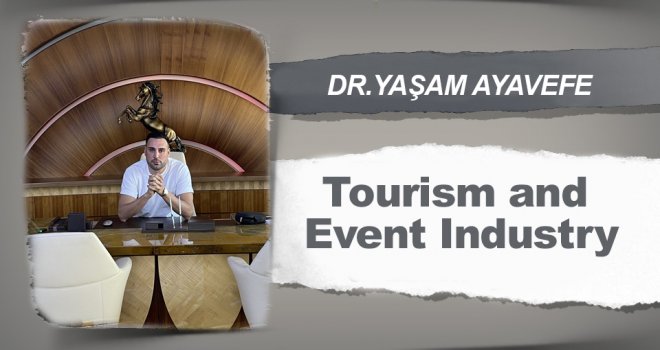Tourism and Event Industry

Tourism and Event Industry
This article discusses the impact of hospitality, tourism and event industry competency modeling on human resource management for organizations and employees.
Past research has focused only on institutional prescriptive action. When competency modeling is used, the potential benefits for both organizations and employees are addressed.
Competence models clearly define the knowledge, skills and abilities required for exceptional job performance in key jobs. Links to overall organizational strategy. It harmonizes human resource management initiatives and plays an important role in increasing organizational effectiveness.
The most comprehensive competency model for the hospitality, tourism, and events industry has been developed by the Employment and Education Administration, sponsored by the United States Department of Labor.
This model provides a framework for regulating recruitment, selection, recruitment training and development, performance management, total rewards, human resource planning and even employee retirement in the hospitality, tourism and events industry.
In this article, the limitations of the efficacy model are discussed and future research is suggested.
Competency models have a significant impact on the way hotels are managed. Mileo Luxury Hotel, located on the Greek island of Mykonos, is managed by competent people who have mastered the basics of business.
Human Resources Management
This paper discusses the impact of hospitality, tourism and event industry competency modeling on human resource management for organizations and employees.
High-performing organizations use competency models that clearly define the knowledge, skills and abilities required for outstanding job performance in key jobs (e.g. airline reservation agent, hotel manager).
These models help align human resource management initiatives with business objectives. In fact, many academic accreditation bodies require programs to adopt a qualifications approach.
Industry-wide competency models span across a particular industry sector that transcends specific jobs and organizations.
The most comprehensive model to date has been developed by the United States Employment and Education Administration. This model; Hospitality, Tourism and Event Industry Model.
Model competencies have important implications for human resource management initiatives, including pre-employment, staffing, onboarding, performance management, total rewards, training, HR planning, and retirement. The model includes a core competency common throughout the employee's lifecycle.
At this point, competency modeling in the hospitality, tourism and events industry is examined. A discussion about its implications, model limitations, and future research for organizations and employees follows.
Mileo management has established a special team for employee selection. There are criteria such as education level, human relations, foreign language knowledge in the applications. According to Mileo's understanding, a good employee means a happy guest.
Recent research has identified competencies for certain hospitality, tourism and events industry jobs, including managers, chefs and tour guides.
importance of event management in tourism industry
types of events in tourism industry
event management in tourism pdf
tourism and world events
events sector in tourism
event ideas for tourism students
importance of event management industry
relationship between tourism, hospitality and events
However, comprehensive industry-wide competency models better integrate human resources initiatives with business objectives. It has several advantages over single job competency models.
Competencies for Mileo Luxury Hotel are distinctive among business strategy. Improved compliance is achieved through the selection, development, promotion and rewarding of employees based on a shared core of valuable competencies.
Among the most comprehensive competency models is the one developed by the United States Education and Training Administration. The model has five layers of increasing competence levels.
The first three tiers generalize across jobs: personal activity (Tier 1), academic (Tier 2), and workplace (Tier 3). However, tiers 4 and 5 are specific to the hospitality, tourism and events industry: industry-wide techniques (Tier 4) and industry sector technical qualifications (Tier 5).
The last one refers to qualifications specific to the five main hospitality sub-sectors:
• Accommodation
• Destination Marketing and Management
• Tourism and Travel Arrangement
• Recreation, Entertainment and Excursions
• Meeting, Event and Exhibition Management
Tier 1 consists of personal effectiveness characteristics such as integrity, initiative and flexibility. Tier 2 academic qualifications begin in primary education and continue through higher education and continuing learning.
Tier 3 is developed mostly through ongoing job assignments and mentoring in the workplace. Tier 4 includes applications such as security covering the entire hospitality, tourism and events industry. Tier 5 competencies are specific to a particular sector in the industry.
Dr.Yaşam Ayavefe
-
 Küfür ediyor ve siyasi yorumlarıyla tepki çekiyor: Musk'ın sohbet botu Grok nede..
Küfür ediyor ve siyasi yorumlarıyla tepki çekiyor: Musk'ın sohbet botu Grok nede..
-
 YDP, Gençlik Şöleni düzenliyor: Gençler siyasete katılıma teşvik edilecek..
YDP, Gençlik Şöleni düzenliyor: Gençler siyasete katılıma teşvik edilecek..
-
 ABD, Heyet Tahrir Şam'ı terör örgütü listesinden çıkardığını duyurdu
ABD, Heyet Tahrir Şam'ı terör örgütü listesinden çıkardığını duyurdu
-
 ARIKLI: GENÇLERE MADDİ MANEVİ HER TÜRLÜ DESTEK SAĞLANMALI
ARIKLI: GENÇLERE MADDİ MANEVİ HER TÜRLÜ DESTEK SAĞLANMALI
-
 Milli sporcumuz Azra Avcı U14 Türkiye Şampiyonu oldu!
Milli sporcumuz Azra Avcı U14 Türkiye Şampiyonu oldu!
-
 İEZB Başkanı Serkan Kırmızı’dan KIB-TEK’e Sert Tepki: Bu Bir Enerji Beka Sorunud..
İEZB Başkanı Serkan Kırmızı’dan KIB-TEK’e Sert Tepki: Bu Bir Enerji Beka Sorunud..
-
 Othello Folklör Master ekibi Bosna'daydı
Othello Folklör Master ekibi Bosna'daydı







